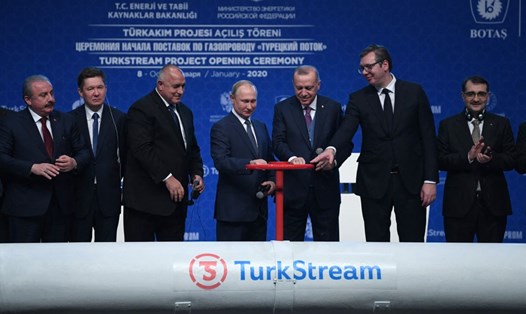RT reported that Russia's GDP could increase by 600 billion rubles (US$6.5 billion) per decade if the average annual temperature across the country rises by 1 degree Celsius. Experts conducting research concluded that the agricultural and forestry sectors will benefit the most from global warming.
The findings in the report of the Institute of Economic Forecasting under the Russian Academy of Sciences (IEF RAS) were presented at the forum " BRICS Climate agenda in Modern Conditions" held in Moscow (Russia) on August 30.
According to Aleksandr Shirov, director of IEF and one of the authors of the study, on average, temperatures in Russia increase by 0.5 degrees Celsius per 10 years, posing additional risks of severe weather as well as creating challenges for the economy.
However, if an effective adaptation policy is implemented, the impacts of climate change could bring positive benefits to Russia, he said at the forum.
The study compared the profits and damages that may occur in different sectors of the economy, such as agriculture, mineral exploitation, transportation and construction, etc. Damage caused by temperature increases by 1 degree Celsius in all sectors reached 2.45 trillion rubles (26.8 billion USD), while benefits reached a total of 3.64 trillion rubles (39.8 billion USD).
The total impact of climate change on Russia's annual GDP is estimated at +1.2 trillion rubles (or 0.7% of GDP recorded by the end of 2023), the report said.
"Given the current trend on climate change, it can be said that Russia's GDP will increase by about 600 billion rubles ($6.5 billion) per 10 years," the report said.
According to the research team, the main benefits come from agriculture and forestry, and from the development of the Northern Shipping quite (NSR) - a shipping route running along Russia's Arctic coast from Murmansk to the Bering Strait and the Far East.
Many industries participate in the work of the NSR a super project, the development process of this project is associated with climate change - the study noted, referring to the melting and thinning of the east-west corridor becoming more feasible.
However, researchers have also urged measures to mitigate the potential risks from climate change. For example, further developing a health care system and "adaptable financial and insurance mechanisms", as well as protecting the ecosystem, buildings and works from emergency situations.
Russia is the world's largest country, but it is estimated that about two-thirds of its territory is covered in permafrost. The research results also named top priority steps to reduce the impact of perennial frozen soil layer degradation due to climate change.
These steps include developing measures to stabilize soil temperature, provide temporary storage facilities for excess water, build and reinforce dams, reinforce buildings and works.











